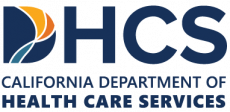March is Self-Harm Awareness Month, a time to shed light on the hidden issues surrounding self-injury. For physicians trained to prioritize others’ well-being, it can be especially difficult to acknowledge and seek help for personal struggles. Doctors are not immune to emotional pain, nor are they exempt from coping mechanisms like self-harm.
What Is Self-Harm?
Self-harm refers to the deliberate act of injuring your body, often to escape psychological distress. Common forms of self-injury include cutting, burning, and hitting yourself.
Self-harm is typically not the same as a suicide attempt. While both issues are serious signs of emotional turmoil, the motivation behind self-injury is typically a desire to manage intense feelings rather than to end your life. It is a form of emotional release, often used by people who feel they have no other outlet for their inner turmoil.
Why Physicians Self-Injure
Physicians must be calm under pressure and composed in the face of trauma. But beneath that professionalism can lie intense emotional stress, grief, burnout, and depression. The burden of perfectionism, high expectations, long hours, and exposure to suffering can take a toll, especially when doctors feel they cannot show vulnerability.
Doctors may engage in self-harm for several reasons:
- To cope with emotional numbness or overwhelming stress
- As a release for grief, guilt, or depression
- To regain a sense of control in chaotic circumstances
- To punish themselves for perceived failures or inadequacies
Many physicians suffer in silence due to fear of professional consequences, turning to self-harm as a secretive and shame-laden way to cope.
The Link Between Self-Harm and Shame
Shame and isolation go hand in hand with self-injury. You may fear judgment, misunderstandings, or worry that others will believe you’re unfit to practice if you admit to self-harming behavior. This stigma can prevent you from seeking the help you always encourage your patients to pursue.
At The Practice, we recognize that disgrace is a significant barrier to recovery. That’s why we’ve created a safe, confidential space where physicians can talk openly about their struggles and receive treatment without fear of judgment.
Self-Injury Treatment at The Practice
Healing from self-harm involves more than stopping the behavior – it requires understanding the emotional roots behind it and learning healthier coping strategies. At The Practice, we offer specialized, integrative treatment for physicians.
- Evidence-based therapies such as cognitive behavioral therapy, dialectical behavioral therapy, and trauma-informed care
- Personalized treatment plans tailored to your unique emotional and professional challenges
- Supportive peer environments where you can share your experiences and break the cycle of isolation
- Confidential care that protects your privacy and professional standing
- Comprehensive aftercare planning to ensure your long-term recovery and ability to return to practice
Breaking the Cycle of Pain
At The Practice, we believe every physician deserves compassionate, confidential care to heal their bodies and minds. Self-harm is a more common cry for help than most people realize. If you are a physician who has turned to self-injury as a coping mechanism, help is available.
Self-Harm Awareness Month is a reminder that healing begins by recognizing that you deserve to reclaim your health, purpose, and peace of mind. Reach out today to learn more about our confidential programs designed exclusively for physicians.


